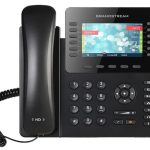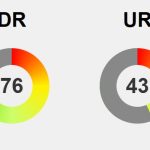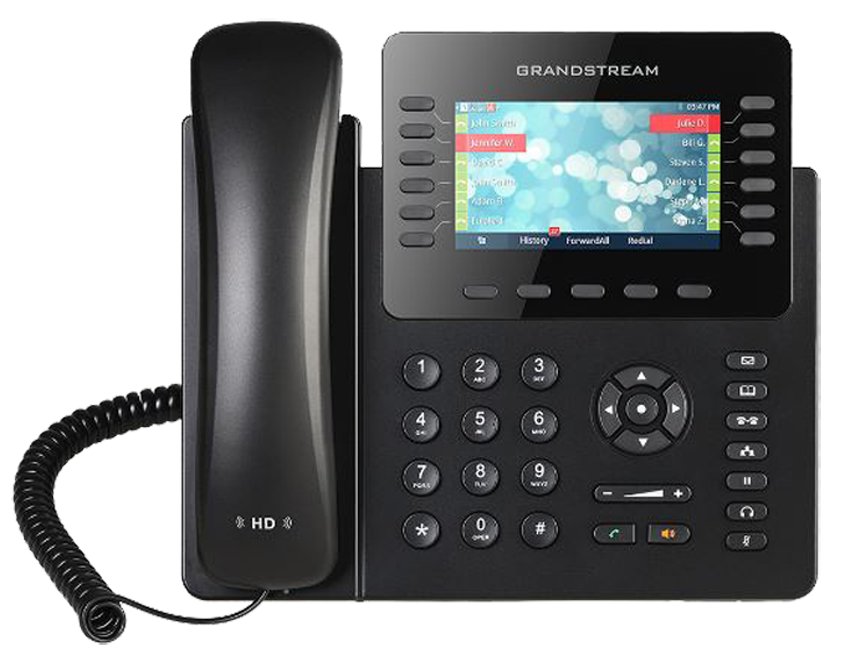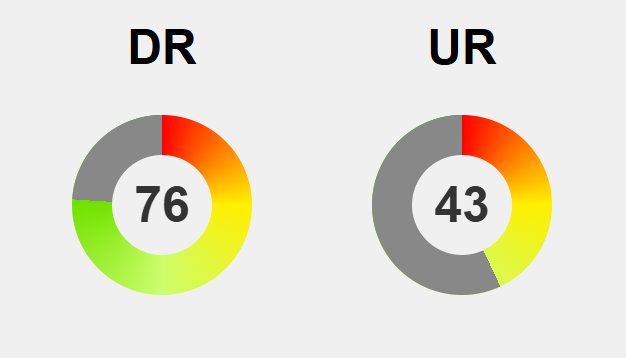Finding the perfect business accountant can be a game-changer for your financial future—are you overlooking critical factors that could make or break your success? This guide emphasizes that selecting the right partner extends beyond basic qualifications; it’s about building a strategic alliance rooted in trust, industry experience, and clear communication. A skilled accountant not only manages compliance and taxes but also offers insights that can boost cash flow, uncover growth opportunities, and safeguard your business against risks. But how do you identify someone who truly understands your sector and aligns with your goals? The answer lies in evaluating credentials, transparency, responsiveness, and compatibility. Investing time in this crucial relationship can lead to smoother operations, smarter financial decisions, and long-term stability. In a competitive landscape, is your current financial partner empowering your growth—or holding you back? Choosing wisely today sets the foundation for a resilient, thriving future.
Partner with a Trusted Advisor to Shape Your Financial Future
Choosing the right business accountant is a decision that can shape your company’s financial future. It’s more than just finding someone to handle taxes—it’s about partnering with a trusted advisor who understands your unique needs and can help you navigate complex financial landscapes. A good accountant offers strategic insights that can save you money, improve cash flow, and set your business on a path to growth.
In today’s competitive market, having a reliable financial partner is essential. Whether you’re starting fresh or managing an established business, the accountant you select influences everything from compliance to expansion planning. They become an extension of your team, helping you make informed decisions and avoid costly mistakes.
This article will walk you through key qualities to look for—such as credentials, industry experience, and communication style—that help identify the right fit. Understanding what sets a trusted accountant apart will make your evaluation process easier and more effective.
Finding the right partner isn’t just about qualifications; it’s about chemistry and trust. An accountant who listens, communicates clearly, and offers proactive advice can become a true ally. When they understand your vision and communicate openly, you’ll be more confident in your financial decisions.
Making this choice now lays a strong foundation for future stability and growth. As your business evolves, your financial partner should evolve with you—providing ongoing support, insights, and guidance. A seamless, collaborative relationship can transform how you manage your finances and unlock new opportunities.
Building a Foundation: Qualifications, Experience, and Industry Standards
A solid foundation starts with verifying a business accountant’s credentials. Certifications like CPA or CMA aren’t just titles—they demonstrate that the professional has met strict standards in accounting, tax law, and financial management. These qualifications are essential indicators of their expertise and trustworthiness when handling your company’s finances.
Beyond formal credentials, staying current with industry standards and regulations is crucial. An effective accountant actively updates their knowledge through seminars, professional courses, and ongoing education. This commitment ensures your business remains compliant with evolving laws and benefits from the latest best practices, avoiding costly penalties and mistakes.
Experience tailored to your sector adds significant value. Accountants familiar with your industry—whether tech, retail, or manufacturing—understand sector-specific challenges and opportunities. Their insights enable more relevant advice, helping you capitalize on growth avenues while sidestepping common pitfalls.
Technical skills alone aren’t enough; strong communication matters just as much. The best accountants can explain complex financial concepts in clear, simple terms, helping you understand your numbers. They listen carefully to your goals and respond proactively, building a relationship based on trust and mutual understanding.
Professionalism and reliability are non-negotiable. Look for an accountant with a proven track record, positive references, and transparent service offerings. Their ethical standards and attention to detail foster confidence that your finances are in capable hands, laying the groundwork for a strong, long-term partnership.
Finally, ongoing professional development signals a proactive mindset. Accountants who seek new certifications, attend industry events, and stay ahead of regulatory changes bring fresh insights and innovative solutions to your business. This continuous growth ensures your accountant remains a valuable resource as your needs evolve.
Finding Your Perfect Fit: Qualities and Evaluation of Potential Accountants
Finding the right business accountant begins with understanding what qualities truly matter. Credentials like CPA or CMA demonstrate that a professional has met rigorous standards, but they’re just the starting point. Experience in your specific industry—whether retail, tech, or manufacturing—can make a real difference, as sector nuances often require tailored advice and insight. An accountant familiar with your field will better anticipate challenges and spot opportunities unique to your business.
Clear communication is equally critical. Your accountant should be approachable, able to explain complex financial concepts in plain language, and genuinely interested in your goals. When they actively listen and respond thoughtfully, it builds trust and makes collaboration smoother. You want someone who asks questions about your operations and offers advice aligned with your growth plans, not just someone who crunches numbers in isolation.
Pricing transparency helps you make smarter choices. Understand their fee structure—whether hourly, flat-rate, or retainer—and what services are included. This clarity prevents surprises and ensures their support fits your budget. A good accountant will also be flexible, ready to scale their services as your business expands or shifts.
References and reviews are valuable tools. Talking to other clients can reveal how well an accountant manages deadlines, accuracy, and ongoing support. Trust your instincts during these conversations; genuine enthusiasm and professionalism are strong indicators of a good fit. If something feels off, explore other options until you find someone who truly understands your needs.
Don’t overlook the importance of compatibility. An accountant who shares your vision and shows proactive interest in your success can become a strategic partner, not just a service provider. Their enthusiasm and sector-specific knowledge can elevate your financial strategy and support your growth.
Evaluate their responsiveness and willingness to collaborate. A top-tier accountant will keep you informed, answer questions promptly, and offer insights that help you make smarter decisions. Their involvement should feel like an extension of your team, invested in your long-term success.
Ultimately, choosing the right accountant is about finding someone you trust and who understands your business deeply. Their skills, experience, and attitude should align with your goals, making them a true partner as you grow. Taking the time to evaluate carefully now will pay off in smoother operations, better financial health, and a stronger foundation for future success.
Building a strong relationship with your accountant can also be enhanced by exploring specialized resources and tools that support your financial management. For example, many businesses find value in using dedicated financial platforms designed to streamline reporting and compliance. To learn more about effective financial management tools tailored to your needs, consider visiting this resource on financial management tools, which offers insights into selecting the right solutions to complement your accountant’s expertise.
Aligning Visions: Selecting an Accountant Who Supports Your Goals
Choosing the right business accountant means finding someone whose approach and mindset align with your goals. Start by having honest conversations about what you want to achieve—whether it’s growth, improved cash flow, or tax savings—and see if they genuinely understand and share your vision. An accountant who listens carefully and responds thoughtfully can become a true partner, not just a service provider.
Experience in your specific industry makes a big difference. An accountant familiar with your sector will understand common challenges and opportunities, offering advice that’s tailored and actionable. They’ll anticipate issues before they arise and suggest proactive solutions, helping you grow confidently.
Communication style matters just as much as technical skills. Look for someone who explains complex concepts simply and asks insightful questions about your business. An approachable accountant makes collaboration easier and helps build trust, making it more likely you’ll receive advice that’s relevant and timely.
Pricing transparency is key. Clarify their fee structure—whether hourly, flat-rate, or retainer—and what services are included. A good fit is someone whose costs match your budget but also provides strategic support. Clear expectations from the start prevent misunderstandings and foster ongoing support.
Meeting with a few candidates allows you to gauge their enthusiasm and genuine interest. Do they show proactive initiative? Do they understand your industry’s nuances? These signs reveal whether they’ll go beyond basic tasks to support your growth. References or client reviews can also confirm their reliability and professionalism.
Trust your instincts during these discussions. An accountant who demonstrates real interest in your success and offers personalized advice is more likely to become a valuable partner. Seek someone aligned with your vision, ready to support your journey from startup to scale-up.
Finally, choose someone who feels like a true collaborator. An approachable, goal-oriented accountant can help you navigate financial challenges and seize new opportunities. Investing time now to find this fit ensures a productive, long-lasting relationship that accelerates your business’s growth.
Weighing Costs and Benefits: Financial Considerations in Hiring an Accountant
Hiring a business accountant is a significant financial decision that requires careful evaluation of costs and long-term value. Start by understanding the fee structures—some charge hourly rates, which offer flexibility but can lead to unpredictable expenses, especially if your needs fluctuate. Others prefer flat fees for specific services like tax preparation or audits, providing clearer budgets. Monthly retainers are common for ongoing support, offering stability and continuous guidance as your business grows. Comparing these options helps you select a plan that fits your cash flow and growth plans.
An accountant’s impact extends well beyond their invoices. Their strategic advice can uncover deductions, optimize your tax planning, and improve cash flow management—saving you money over time. Their expertise can help you avoid costly mistakes, such as penalties for missed deadlines or compliance errors, turning their fees into a worthwhile investment. Viewing these costs as operational expenses that support your broader goals makes it easier to justify the expense.
However, poor communication or hiring someone without the right expertise can be costly. Errors, delays, or oversight can lead to penalties or lost revenue, so setting clear expectations from the start is essential. Regular check-ins and ongoing oversight prevent misalignments and ensure your accountant’s work continues to serve your best interests.
Funding your accountant’s fees might require strategic planning. Many small businesses incorporate these costs into their budgets, considering professional support as an investment rather than an expense. For startups with limited cash flow, options like short-term loans or lines of credit can help manage expenses. Some regions also offer grants or programs that offset professional service costs, easing your financial burden.
The value of a good accountant often surpasses their fees. Besides ensuring compliance, they help reduce taxes, streamline financial operations, and identify growth opportunities—benefits that translate into savings and increased revenue. Viewing their fees as an investment in your business’s future underscores their strategic importance.
It’s wise to review the cost-effectiveness of your accountant relationship periodically. As your business evolves, so should your support. Reassessing fees, scope, and results helps you maximize value. If issues persist or your needs shift, exploring alternatives ensures you continue to get the best support.
Choosing an accountant involves balancing cost with expertise and trust. The right professional can help you navigate complex financial landscapes, save money, and lay a strong foundation for growth. Making informed decisions now ensures your business invests wisely in its future, with clear financial support guiding your journey.
Leveraging Expertise: Implementing and Growing with Your Financial Partner
Integrating your accountant’s services into your daily operations is a key step toward turning their expertise into tangible growth. Establishing regular communication routines—such as monthly or quarterly check-ins—keeps you aligned and allows for ongoing adjustments to your strategies. These conversations help you stay updated on financial performance, identify new opportunities, and address challenges before they escalate.
Leverage your accountant’s insights to enhance cash flow management, refine tax planning, and develop accurate financial forecasts. These tools are more than just numbers—they serve as strategic assets to guide your business decisions. As the relationship deepens, consider scheduling strategic planning sessions that focus on expansion opportunities or cost-saving initiatives, positioning your accountant as an active partner in your growth journey.
Onboarding your accountant should be a deliberate process. Share your business goals, existing financial systems, and key documents upfront—think bank statements, tax returns, and payroll data—to give them a clear picture of your operations. Clear expectations about their role and responsibilities foster trust and ensure everyone is working toward common objectives.
Set milestones to measure your progress, such as reducing tax liabilities, improving reporting accuracy, or increasing cash flow. Regularly reviewing these benchmarks keeps both sides accountable and focused on results. Celebrating small wins along the way can boost motivation and demonstrate the tangible benefits of a strong financial partnership.
Clarify roles between your internal team and your accountant. Decide which tasks—like daily bookkeeping—you’ll handle and which strategic functions—like tax planning—they’ll take ownership of. This division prevents overlap, maximizes their expertise, and ensures your accountant contributes meaningfully to your growth efforts.
Continuously monitor their performance by assessing the accuracy, responsiveness, and relevance of their advice. If issues arise, address them openly to maintain a strong, collaborative relationship. Your accountant’s ongoing support should feel integral to your operations, helping you navigate financial challenges and capitalize on emerging opportunities.
Encourage your accountant’s involvement in strategic discussions, such as investment plans or market expansion. Their financial perspective can reveal risks or opportunities you might overlook. Including them early in these conversations embeds financial insight into your long-term vision, making growth a shared objective and setting the stage for sustained success.
Mitigating Risks: Preventing and Managing Challenges with Your Accountant
Working with a business accountant involves some risk, especially if communication isn’t clear from the start. Setting detailed agreements upfront—outlining scope, deadlines, and fees—helps prevent misunderstandings that could lead to mistakes, missed opportunities, or costly penalties. Transparency from the beginning keeps everyone aligned and reduces surprises down the line.
Relying on an accountant who lacks the right experience or credentials can cause serious issues. An unqualified professional might overlook regulatory requirements or make errors that drain your resources or expose you to legal trouble. Conducting thorough background checks and requesting references can help you avoid these pitfalls and ensure your finances are managed by someone with the proper expertise.
Regular communication acts as your best safeguard. Scheduling routine check-ins allows you to review ongoing work, clarify expectations, and address concerns early. If you notice inconsistencies, missed deadlines, or inaccuracies, addressing them promptly keeps the relationship productive and your finances in good shape. Staying involved helps catch potential problems before they escalate.
Even with diligent oversight, mistakes can happen. Having a contingency plan—such as a backup accountant or trusted advisor—can save you from disruptions. Establish procedures for correcting errors and revisiting your strategies regularly. This proactive approach builds resilience and ensures your business can adapt swiftly to unforeseen setbacks.
Trust and ongoing oversight are essential to managing risks effectively. Monitoring report accuracy, deadlines, and the relevance of advice keeps your financial operations on track. When issues arise, addressing them openly and promptly maintains confidence and a strong partnership. Staying informed about industry standards and best practices further arms you against emerging risks, helping you respond swiftly and protect your business’s future.







